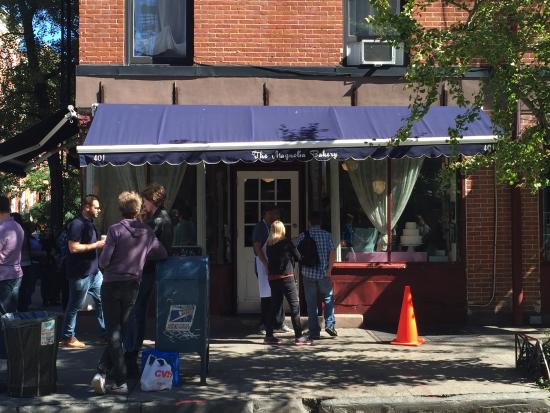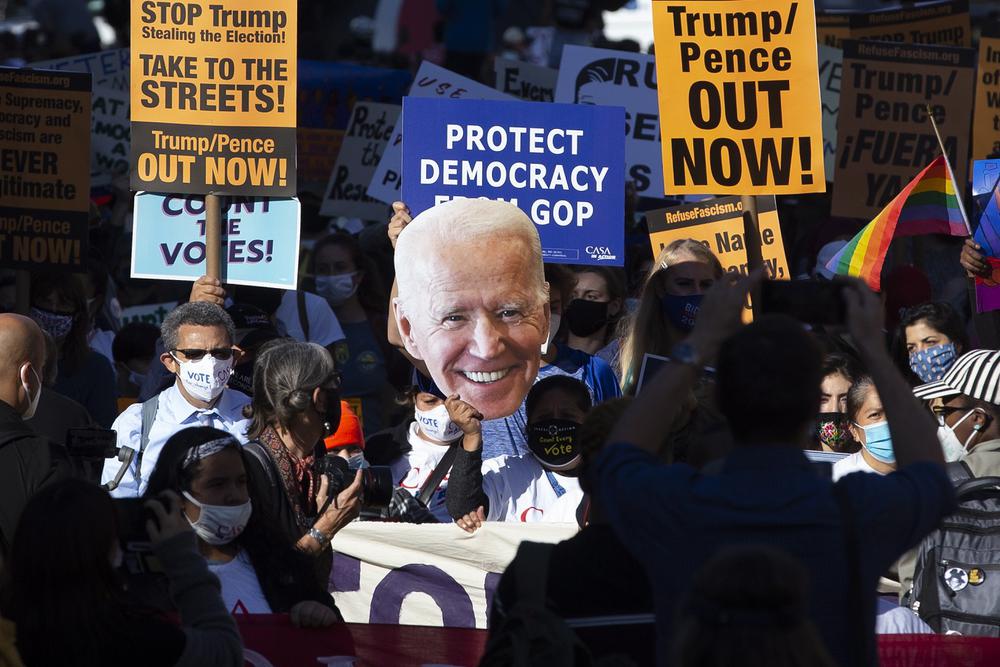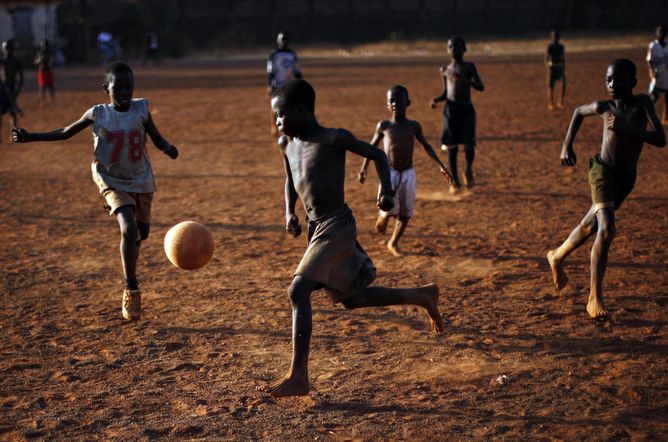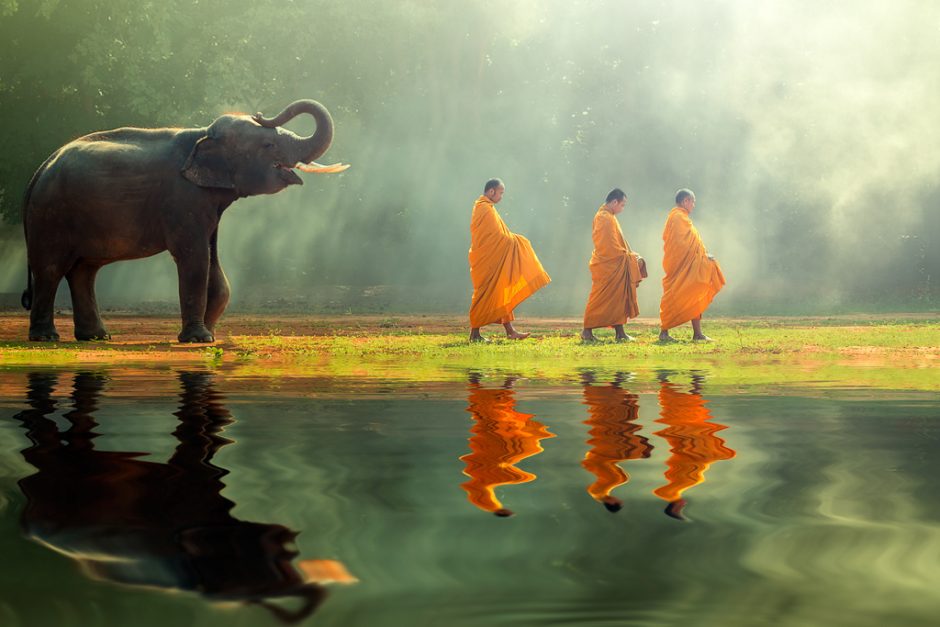Writing Samples
How a cupcake and ‘Sex and City’ remade Bleecker St.
- Published in The Villager on 11th April 2006

In its artistic heyday, Bleecker St. was home to smoke-filled cafes packed with cultural heroes of a contemplative bent. It stood for Greenwich Village, the Beats, Dylan, rebellion. Out-of-towners who visit New York still hope to soak up a little of that countercultural spirit.
But nowadays it’s easier to find a $500 outfit than an outsider artist. Vying to capitalize on the street’s renewed popularity, major fashion retailers are elbowing out the old cafes, butcher shops and antique stores.
“Bleecker is becoming the Madison Ave. of Downtown,” said John Brod, founding partner of PBS Realty Advisors, an advisory firm for commercial real estate.
Fashion businesses are in search of “branding opportunities” and strong retail performance per square foot, Brod said. Over the last three years, average Bleecker St. rent prices have risen sixfold, from $50 to $300 per square foot. Soaring New York real estate prices are a factor, but so is the skyrocketing popularity of a Bleecker address.
But TV’s discovery of Bleecker St. may have been one of the biggest factors. After Sarah Jessica Parker ate a creamy retro cupcake on “Sex and the City” at a beloved local landmark, The Magnolia Bakery, the tour buses began circling. The lines outside the tiny bakery swelled into queues stretching around the corner. Soon, upscale clothing retailer Marc Jacobs, salivating over the youthful crowds, rented a shop right across the street.
“Our goal was to take advantage of the huge concentration of young people who flooded into the area, especially with the ‘Sex and the City’ show,” said Debbie Lee, a Marc Jacobs assistant manager.
Now Ralph Lauren, Banana Republic and Abercrombie & Fitch have glommed onto Bleecker St. too.
The pedestrian-oriented street of 19th-century brownstones and tenements still exudes an image of hip, young and free — but not poor. In a parallel explosive demand for Downtown apartments, some of the newest residents are well-heeled young people and families, realtors say.
In mid-2005, the average three-bedroom apartment in this area sold for nearly $2.4 million, up 46 percent from the year before, and condo prices, at $1,223 per square foot, were up 47 percent, according to the proprietary database ValuExchange TM, which conducts the largest survey of Manhattan real estate sales.
“The Village has become a very desirable place to live,” said Betul Ekmekci, an agent for the residential brokerage Halstead Property. “Young people feel that they will have freedom of expression here, so they choose to live the Village myth, even if that will cost them more.”
Though artists were always part of the Village myth, one sees fewer of them around these days, Ekmeckci noted.
“Now they have moved to Williamsburg and Staten Island because they can’t afford the rent.”
Elaine Abelson, a history professor at Greenwich Village’s New School University, sees the shift the same way.
“The area is having its face reclaimed for the upper middle class, so it is in the process of gentrification, and that means that you have to satisfy modern, commercial needs,” she said. “It is not bohemian anymore.”
Some independent shops still thrive, especially those selling handcrafted, vintage or imported merchandise. Lori McLean, whose jewelry shop is located on nearby Grove St., finds that her delicate charm necklaces and funky bracelets are still desirable for heavy wallets, bridging the old hippie face of the neighborhood with its wealthy newcomers.
“When you come into the city, you have an image of it in the back of your head,” she said. “The residue of artistry is always linked to the Village.”
Woe betide any merchant, though, whose wares have been dubbed passé.
For Sani, the 62-year-old Indian owner of Fabulous, the new climate is simply a plunge over a cliff.
“There is no tomorrow for me, I can’t make plans for it,” he lamented. “I take this hard road day by day.” The shop has been in his family for 30 years, and the traditional Indian clothing he sells there was once gloriously famous locally. Now his solitary saunter in his store empty of people is like that of an old man on a deserted street.
“After 9/11, things got even worse for us. I think people now prefer to shop from the big names and not from me,” he said with finality. “But it’s my home. If I close, that will be it.”
Toosh, another local clothier, has posted prominent posted signs offering 50 percent discounts.
“My boss says the business is dead right now,” said a worker there, adding that the full-time staff had been cut from four to two.
Outside, pedestrians rush along the sidewalks as the sun sets, far more likely to be toting shiny shopping bags with embossed logos than protest placards or poetry books. After all, New York never sleeps. Maybe it’s too busy reinventing itself.
The deeply wounded democracy in the States and the hope for recovery after Biden’s win
- Published in Hellas Journal on 16th November 2020

After many waiting days and a pre-election campaign that has been known for its polarized feel -which was only toned down by the coronavirus that put a lid on the number of debates and rallies – we can now clearly say that a new era has come for the United States of America, with Joe Biden and Camala Harris in the country’s front seat.
Does this mean that American has entered a new course? Not necessarily and certainly not in an instant. Let’s not forget that anything that we witnessed in the last four years during Trump’s administration was essentially a lasting institutional collapse of a mature, liberal democracy.
This is an era that will be forever stamped on the public’s memory for its clear signs of political decay; a problem that was further enlarged by how things stacked up for democracy all over the world and which was expressed in waves in social media, giving prominence to its natural proximity to fake news.
However, one should admit that the symptoms of decomposition and racial polarization in the United States had started to emerge even before Donald Trump’s successful campaign in 2016. Even more precise, these symptoms had been solidified by then.
Yet, Trump’s administration won’t be historically able to free itself from the fact that during its time, federal imposition of law and presidential abuse of power have been widened.
Donald Trump abandoned the norms while America stormed out of its role as timeless protector of the term “international normality”. But still, he was able to win more votes than any other presidential nominee, excluding Barack Obama in 2008 and Joe Biden in 2020. It’s exactly what we sometimes tend to say that “the degree of someone’s victory is measured by the value of the one who lost” and Mr. Trump put this year’s winning bar very high for his opponent.
This is a seemingly valueless achievement, but it’s also quite indicative of the correlations within the american society; an impressive batch for anyone who would seek to maintain and carry ideas similar to his.
Politically what needs to be observed is that this very fact will possibly bring the Republican party into a position to almost dutifully preserve this anti-liberal rhetoric as its political pillar for some time in the near future, regardless of what that will entail in the short run.
Under these circumstances, Joe Biden’s pledge that the United States wll organize and host a Global Summit for Democracy during his first year in office is very critical in order for the spirit and common cause of nations of the free world to be renewed.
Joe Biden will need to slowly but steadily work towards bringing the United Stated back close to its allies and partners. But also on the national level, he has to restore democratic values that will give power to the people which will subsequently reunite them. By breathing life into democracy inside the country, he will be able to expand it on the outside. And Greece will be waiting, just around that corner…
Anything to Score
- Published in WorldPress.Org on the 7th March 2007

For Okyere Missah, 16, the dream has just begun. Missah is another young man dazzled by hopes of making it as a soccer star, on the heels of Ghana’s first-ever World Cup appearance in 2006.
Ghana lost to Brazil in the battle to enter the quarterfinals, but beat the United States. Instead of desolation at the team’s loss, pride and excitement at having come so far emerged in Ghanaian hearts. And a migratory dream was being shaped deep in their skin.
Most of the members of the national team, the Black Stars, built their skills in the European leagues, kindling among a generation of young Africans hopes of similar success.
As many as 4,000 young Africans, many of them minors, have in this way found themselves in Europe, with dreams of playing professionally.
Missah lives in Dansuma, a poor neighborhood in Accra, Ghana’s capital. It’s not every day that he can eat. His family earns less than $3 a day — which means he often has to choose between eating and cadging a ride to the nearest soccer park. Typically he picks soccer.
“If I have 5 cents, I can buy an orange, that’s my food. And if I don’t have money at all, I’ll drink more water. If I drink more water, I can regain my strength, and I’ll be satisfied,” he says ruefully.
At age 12, Missah dropped out of school, to make more time to play. It seemed impossible to attend both classes and training sessions. Now soccer is his life.
A few days after Ghana’s brilliant World Cup performance, Missah saw his brightest day. An unlicensed agent spotted him on the street. The 45-year-old man then approached Missah’s father, asking him for his son’s guardianship. The response was an enthusiastic yes.
“I want to be a star in my future, and I am willing to do whatever it takes to make this happen,” Missah said, a few moments after his father signed him over. With this agreement, common in Africa, the guardian will pay for a young man’s basic needs, like food and clothing, and will expect a much bigger return of his minimal investment, if the boy succeeds in joining a European club. But all this will be done in an unlicensed, unmonitored fashion.
Hadjia Habiba, one of only three licensed agents in Ghana, knows exactly what that means.
“The unlicensed agent doesn’t pay tax, doesn’t go to any police headquarters to clear his name, nothing,” she said. “But he takes a player from country to country, illegally. The parents know you’re talking about hard currency, dollars or euros. So, they’ll be glad to just let the boy go.”
The Ghanaian Ministry of Sports and Education has issued a warning, saying that if an unlicensed street agent promises to help a teenager go to Europe, Ghanians should turn him down, and also report him to the closest police station. But that’s hardly what parents do. For them, the chance for their child to have an international career in Europe is vastly preferable to any other option — and soccer is now held up as the safest way to migrate there.
Predictably, for many of these teenagers, a European soccer career turns out to be an illusion.
Most of these boys leave Africa without any contract — just a one-month visa. Their agents take them around for tryouts at the European clubs. But only if they perform exceptionally will they be offered fixed-term employment. Otherwise, they are expected to go back home. But that’s often not what happens. The agent, having lost his chance at a transfer fee, frequently abandons his failed star in Europe.
“When the players don’t pass their trials, they are left there stranded,” Habiba said. “They [the agents] don’t care, because they wouldn’t be held responsible. They wanted to protect their pockets with money, but it didn’t happen, so they don’t care. They will leave the player there. Whatever he will do to survive, that is this player’s problem.”
A first-ever conference about this problem took place in Paris last November. Experts, soccer managers and politicians considered ways to protect young African footballers victimized by unscrupulous managers.
In Thessaloniki, Greece, two ex-managers founded an amateur team, the Black Diamonds, out of compassion for stranded African players they noticed wandering the streets. The managers, Giorgios Makropoulos and Panagiotis Tatoglou, organize friendly matches with professional teams, to give the aspiring players a second chance to be seen.
Occasionally it works.
“We started playing with them, and suddenly they were seeing us and they were asking, where did you get these guys? They have a big talent,” said Manam Abdul, 23, a Ghanaian interviewed in Greece. Abdul managed to land in a professional club through his involvement with the Black Diamonds.
Most soccer migrants aren’t so lucky. After being rejected at the trials, they are ashamed to go back home, and start walking across Europe, taking whatever jobs they can find.
“They wake up at 5 a.m. and go to the factory, only to get $650 a month, and send back $250 to their families, and tell their parents they earned them through soccer. What soccer?” said Makropoulos, who urges parents to put a halt to this migration, and keep their children home in Africa at least until they’re old enough to represent themselves in contracts.
“Now that Ghana has done so well, I predict that this will become even worse,” he said, with a gesture of worry.
Missah keeps jogging to the nearest pitch, and praises God for sending him a guardian. But for thousands of children like him, who have seen their dreams shattered, his prayer has a long and perhaps treacherous road to travel.
Thinking about taking your lovely pet on holiday?
- Published in Athens Insiders on the 15th May 2020

It might sound like a good and generous initiative that will make for a great idea, but there are quite a few things to take into account before making this decision.
And that’s because small animals that are not familiar with traveling and visiting new places are going to make your holiday far more demanding and much less relaxing than you aspire for.
First of all, you should make sure the place where you are going to be staying has anything your pet might need, including an emergency phone of a vet who will be available even during afterhours.
Before leaving for the trip you should have done a thorough and detailed medical check so as to ensure that your pet is fit for it. If your little friend needs medication, take it with you and have it at hand all the time. Don’t forget to double check if all possible vaccinations have been done properly.
And since you are going to spend the next days strolling around in an unknown place, don’t neglect to get your pet to wear a collar with an identity tag that will clearly state your name, holiday address and contact details, in case it get lost.
Now, there are a few more things you will need to consider - the weather (you wouldn’t want much heat), the hotel’s policy (whether pets are allowed), the search for pet-friendly activities nearby like pubs, cafes and the stuff your pet is going to need (for example blankets) that will make it feel more familiar.
In case you decided to move forward with the idea of taking your pet with you, you should now try to keep its regular routine as much as possible. That means you shouldn’t change its walking timeframes as well as its food habits and toilet breaks.
Especially in terms of the food you are going to be providing, always remember not to change the diet significantly as it may cause problems in its stomach. Don’t forget to give your dog or cat the needed space to explore the surroundings and you will reap the benefits in the next days.
What’s highly important is to provide your pet with a quiet and comfortable space in which it can relax and sleep undisturbed.
If it’s a dog, taking a walk with him is an essential part of each day. In any case you shouldn’t let him off as you may expose him to potential hazards. If you are walking him in the dark, have a LED collar attached to his neck so that others can clearly see him even from distance.
If you suddenly detect a change of behavior, it might be the result of a lack of activity or the engagement in a stressful activity.
That’s not to say you should be overprotective but that you’d rather prefer not to leave them alone for a time that is going to cause them distress which you will then have to handle in a vacation setting.
The do's and dont's of travelling to Thailand
- Published in Karma Group Blog on the 10th September 2016

DO:
Perfect your haggling skills
Phuket is renowned for its many markets that grace the bustling streets of Phuket and beyond from dusk ‘til dawn. With many great deals just waiting to be snapped up, first priority is perfecting your haggling skills. By doing so you can buy everything for at least half the asking price! For some, haggling can be a bit daunting, so the best advice I can give is simply to smile, be friendly, and have fun with it! If you’re not sure what to say, start by offering half of the asking price, and negotiate with the sales person from there. However, keep in mind this is only customary at market stalls, not established stores. Most of all, remember to always come across pleasant.
Get walking!
Exploring Phuket by foot is an excellent way to discover the hidden beauties of this stunning island. From romantic strolls along the beach, to full-blown hikes around Phuket’s tropical national parks, walking from time to time is inevitable. Khao Phra Thaeo National Park is one of Phuket’s last remaining forests that haven’t been altered by humans, with countless protected species of plants and animals finding their home in this tropical paradise. The perfect place to put your fitness to the test. What’s more, the park has a number of trails with the added offer of guided tours, taking you all the way to the stunning natural Ton Sai waterfall. Khao Phra Thaeo National Park is located just 20 minutes by car from Karma Royal Boat Lagoon.
Practice your boat legs
Phuket boasts some of the world’s most beautiful islands discovered world wide. The likes of Phi Phi, the Similan Islands, Coral Island and Koh Bon are some of the most revered in the area, and very popular amongst tourists. With varying distances between each island and the mainland of Phuket, you’re looking at trips of up to an hour. Trust us when we say, you really don’t want to skip out on this part of Phuket! For an effortless island-hopping experience, let Karma Royal Boat Lagoon book a few day trips for you.
Get your vaccinations
Travelling to another country usually requires that you get at least one vaccination, whether it be the United States, Australia, Thailand and beyond. This is because our body hasn’t yet built an immunity against local viruses. Check with your local GP to clarify any concerns or questions regarding vaccinations. Another great tip is packing some sort of hand sanitation. This will prevent the spread of germs and significantly reduce your chance of getting sick. After all, you don’t want to spend your holiday tucked up in bed!
Tip: Make sure you do this at least 4 -6 weeks before leaving for Thailand, so the vaccinations have enough time to become fully effective.
DON’T:
Disregard Thailand’s local customs:
Phuket is a beautiful Island with some of the friendliest people you’ll ever meet, but in order to blend seamlessly amongst the people that inhabit this harmonious place, it is very important to understand the local customs. This not only offers respect to the residents, but it also ensures you’ll be treated with the upmost respect from them in return. To make it a little easier, we’ve included the basic customs that you’ll want to know when travelling through Thailand.
– The ‘Wai’ is the traditional greeting in Thailand, that you will almost inevitably encounter immediately, and more than once. This is essential in Thai culture to show your gratitude for another person, to express thanks, or to say ‘hello’ and ‘goodbye’. To do so, simply press your palms together at chest level and bow your head slightly.
– Do not speak ill of the royal family. Thailand is a constitutional monarchy, with the royal family being regarded very highly around the country. You’ll quickly realise this when visiting, as the King’s image is posted here, there and everywhere. To show your respect, always stand when the King’s anthem is being played, and refrain from making remarks about the royal family. In fact, speaking poorly of the royal family is punishable by imprisonment. So basically, just don’t do it.
– Buddhism teachings say the head is the most valued part of the human body, with the feet representing that of the opposite, a symbol for human suffering. Its for this reason that locals don’t touch the head of others, nor do they point their feet at people or religious symbols.
Travel without an international license:
Tuk-Tuks and taxis are among the most popular forms of transport throughout Phuket, with services on every corner, literally. However, for those that want to guide themselves around this beautiful island, with the leisure to stop wherever you please, hiring a motorbike or moped is a fantastic way to do so. But there are a few key things to remember before donning the leather jacket, including getting your international license.
Many reviews will tell you that simply having a valid license from your own country is enough, and in some cases this is true, however, it’s really not worth taking the risk if it means forking over your hard-earned spending money to a policeman. What’s more, be very careful on the road and be sure to get insurance. Thai streets can get a little crazy from time to time, so its important to be completely confident on the road before hiring a motorbike. Avoid riding in wet weather and always, ALWAYS wear a helmet. If you’re not sure where to hire a moped from, or you need help organising transport, contact Karma Royal Boat Lagoon, and we’ll be happy to assist.
Rates will differ depending on where you hire your motorbike or moped from, however to give you a ballpark figure, we paid about 500 Thai Baht per day, which is around USD $15.
Forget Sunscreen!
Phuket is famous for its comparatively cheap prices; from food to clothing, services and transport. But unfortunately, decent sunscreen is not one of those things. For a tube of sunscreen (that actually protects you from the sun), you’re looking at about USD $22, which for most of us, is simply astronomical. Due to the particularly hot Thai sun, it’s strongly recommended to pre-purchasing a few bottles or tubes before heading off to Phuket. Keep in mind that different airlines will have varying allowances when it comes to carrying liquids, so make sure you check before packing!
